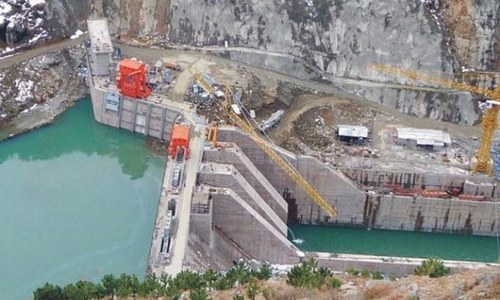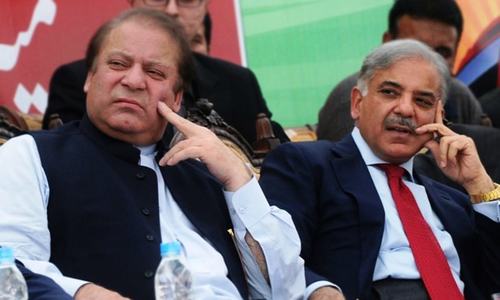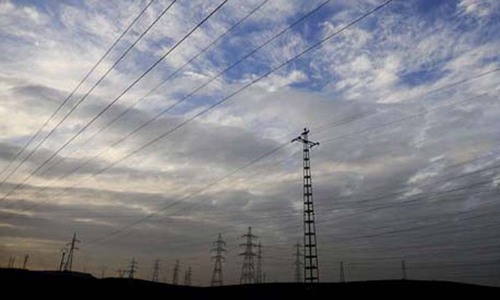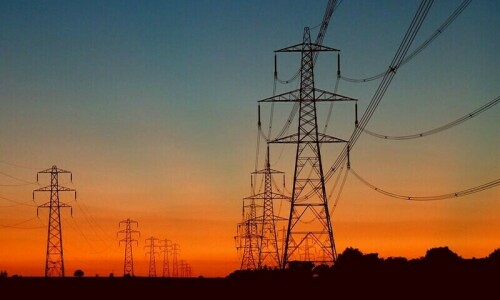ISLAMABAD: The government on Monday announced that it had entered into a 10-year contract with a Chinese firm for operation and maintenance of the controversial Nandipur power project at a price shrouded in mystery.
According to a statement issued by the water and power ministry, the agreement for a long-term operation and maintenance (O&M) of the 425MW plant was signed between the Northern Power Generation Company Limited (NPGCL) and the Hydro Electric Power System Engineering Company (HEPSEC) of China. The agreement is valid “for a period of ten years or two major inspections, whichever is later.”
The contract price was not disclosed.
Water and Power Secretary Mohammad Younas Dagha did not respond to calls and questions sent to him to confirm if the contracted price was significantly higher than the previously allowed 48 paisa per unit by the National Electric Power Regulatory Authority (Nepra), now working under the administrative control of the power ministry under a recent government decision.
Another official, who was not authorised to speak on record, told Dawn that the Chinese bidder had been selected through a process under which bids were opened on April 11 last year and finalised on Aug 6.
He said a total of four companies had participated in the bidding, but two were declared non-responsive. HEPSEC was confirmed the lowest bidder at a total cost of $185 million, followed by $227.2 million offered by TNB Repair and Maintenance of Malaysia.
At this offered rate, the per unit O&M cost works out at about 85 paisa on furnace oil – almost 80 per cent higher than the rate allowed by Nepra.
The regulator had allowed the O&M cost on furnace oil and gas at 48 and 34 paisa per unit (Kwh).
The per unit O&M tariff was significantly higher than that of about 62 paisa per unit for the 1292MW Hub power plant and about 35 paisa per unit for AES-Lalpir, which were originally signed at 35 and 16 paisa per unit in the late 1990s and has since gone up with indexation.
Per unit O&M cost is 80pc higher than the rate allowed by Nepra
As a consequence, the government would have to seek review of Nepra’s determined tariff and prove that lower than this rate was not available in the world or otherwise take a hit on its own return of equity, resulting in economic non-viability of the plant.
Read: Govt to move court over Nepra tariff for Nandipur plant
The power ministry’s official said the contractor was required to hire at least 25pc local workforce for on-job training and would be penalised in case of the plant’s efficiency falling below 44pc, but any higher efficiency gain would go to the contractor without a capping.
The power ministry said the decision to outsource operation and maintenance of the Nandipur power plant was in pursuance of the recommendations of the regulator and a policy decision by the government to outsource O&M of new power plants to experienced international operators in line with prevalent industry practice in order to reduce expenditures, and to bring about latest and efficient practices in power plant management.
The ministry claimed that the plant had been fully operational since its completion in July 2015 and was now running on furnace oil. The plant has been in the media for closures and shutdowns and a subject of Nepra’s criticism.
The ministry said work was under way to run the plant on natural gas for which an 88km pipeline was being laid.
“The plant’s conversion into gas operation, which is expected to be completed by the end of April 2017, will significantly improve its performance, reduce operating costs, and result in overall improvement” and increase its capacity by 100MW to 525MW.
The project’s cost and tariff has been a subject of political and technical controversies since 2008. The government has been contemplating judicial review of the tariff approved by the regulator.
Nepra has repeatedly turned down requests by the government and its power companies to assume the total cost of the 425-525MW Nandipur project at Rs65bn while determining its tariff.
However, the regulator has considered the project’s cost at Rs42bn in a 30-year tariff that averages Rs11.64 per unit.
The government has been seeking Rs15.63 per unit to also finance project delays, resultant cost overruns, penalties paid to contractors and the cost of laying a gas pipeline.
Nepra has tried to convince the government that the project could become viable if the government scales down its 15pc return on equity to 7.5pc.
Also, the gas pipeline cost should be shouldered by the gas company, where it actually belongs.
The Nandipur plant has been in the limelight for more than five years because of inordinate delays, cost overruns and allegations of mismanagement, corruption and kickbacks.
A fresh controversy had erupted last year when the plant was shut down due to technical faults and a tussle between the chief of the power company and the water and power ministry.
This led to a series of audits, probes and parliamentary debates, but nobody was held accountable.
Nepra had put on record in one of its determinations that during the tenure of the PPP government, the law and justice ministry was responsible for delaying the project for about four years during which period the project cost increased by about 160pc — from $329m to $847m.
In the process, the ministry caused a loss of over Rs113bn to the national exchequer until three years ago.
“The Ministry of Law, Justice and Parliamentary Affairs is responsible for causing a delay in completion of the documents. (Due to) the negligence on the part of executive authorities of the Ministry of Law, which has caused the delay, an approximate loss of more than Rs113bn has been caused to the national exchequer up to April 2012,” the regulator said, quoting a report of the judicial commission, headed by a former judge of the Supreme Court, Justice Rehmat Hussain Jafferi.
Published in Dawn February 7th, 2017














































